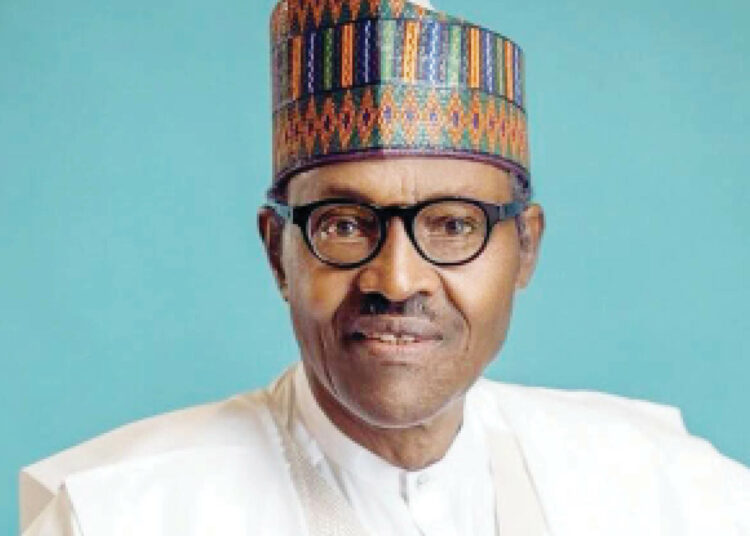The House of Representatives on Wednesday held a special valedictory session in honour of former President Muhammadu Buhari, who died on July 13, 2025, in a London hospital and was buried last week.
In his valedictory speech, Speaker Abbas Tajudeen expressed gratitude for Buhari’s service, particularly his contributions to the strengthening of the institution of legislature and the laws that will guide Nigeria for generations.
“All his life, President Buhari toiled and laboured for Nigeria. As a democratically elected President, he was our partner in governance whose respect for the National Assembly’s role fortified our democracy. His commitment to the principle of separation of powers was resolute. He recognised the legislature as a co-equal arm of government, never seeking to dominate or undermine its authority. Instead, he fostered a partnership that enabled us to fulfil our constitutional mandate,” Abbas said.
The speaker’s remarks, which were read by his deputy, Hon. Benjamin Kalu, said the former president’s directive to ministers and agency heads in his administration to prioritise appearances before House committees during budget cycles exemplified the respect for the legislature.
“By insisting on their accountability to this House, he ensured that Nigeria returned to a disciplined fiscal process, reinforcing the oversight responsibilities entrusted to us, ” he said.
Abbas noted that Buhari’s tenure as president, from 2015 to 2023, was a period of unprecedented legislative productivity, a demonstration of his willingness to collaborate with the 8th and 9th National Assemblies.
He said under the former president’s watch, 129 bills were signed into law, an impressive legislative record, adding that those were transformative laws that addressed long-standing challenges and reshaped Nigeria’s legal framework.
“Allow me to highlight a few of these landmark achievements, forged through the synergy between the executive and this chamber: The Not Too Young to Run Act (2018): This constitutional amendment lowered the age requirements for elective offices, enabling younger Nigerians to participate in governance.
“By signing this bill, President Buhari empowered a new generation to contribute to Nigeria’s leadership, ensuring that youth are no longer excluded from the political process. The impact is already evident in the increasing number of young candidates vying for office, bringing fresh perspectives to our democracy.
Even in this chamber, the presence of so many young Members is partly due to his courage to sign that bill into law.
“The Electoral Act (2022): This legislation revolutionised our electoral process by introducing electronic transmission of results, early party primaries, and restrictions on government appointees serving as voting delegates. These reforms, debated extensively in this chamber, have enhanced the transparency and credibility of our elections.
“The 2023 general elections, conducted under this framework, marked a significant step toward fairer and more accountable electoral processes, a foundation we continue to build upon.
“The Petroleum Industry Act (2021): After nearly two decades of stalled efforts, this chamber, in partnership with President Buhari’s administration, enacted a law that restructured Nigeria’s oil and gas sector. By transforming the Nigerian National Petroleum Corporation into a commercial entity, establishing host community funds, and promoting transparency, this Act has positioned Nigeria’s economic lifeline for sustained growth and accountability.
“Additional Legislative Milestones: President Buhari assented to other critical laws that originated in this chamber, including the Police Act (2020), which modernised our policing framework for the first time since 1943; the Nigeria Startup Act (2022), fostering innovation in our digital economy; and the Discrimination Against Persons with Disabilities (Prohibition) Act (2018), advancing the rights of millions of Nigerians.
“Constitutional amendments in 2023, granting financial autonomy to state legislatures and judiciaries and empowering states to generate electricity, further deepened our federalism. Each of these laws, shaped by the deliberations of this House, bears the imprint of Buhari’s commitment to institutional reform.
President Buhari’s respect for this chamber extended beyond legislative output,” Abbas said.
He noted that Buhari upheld the independence of the National Assembly, allowing internal democracy to guide its leadership selection and refraining from interference, which enabled lawmakers to pass laws that limited executive power, such as the Financial Autonomy Act for local governments and state institutions and the Mental Health Act (2021).
“His willingness to sign bills that enhanced scrutiny of the executive demonstrated a rare humility, a recognition that strong institutions outlast any single administration.
Beyond legislation, President Buhari’s legacy in this chamber is one of partnership. He supported our oversight functions, ensuring that his appointees respected our summons and that the law took its course in cases of misconduct.
“His commitment to the rule of law was evident in his administration’s pursuit of anti-corruption cases through the courts, including high-profile prosecutions that signalled a departure from impunity. By strengthening mechanisms like the Treasury Single Account and signing laws such as the Proceeds of Crime (Recovery) Act (2022), he laid a foundation for greater accountability in public finance, a legacy that continues to benefit our nation.
“As we honour President Buhari today, we acknowledge that his legacy, like that of any leader, invites varied perspectives. Some may point to challenges during his tenure, economic difficulties, security concerns, or unfulfilled aspirations. Yet, in this chamber, we see a broader picture: a leader who served Nigeria for nearly six decades, from a young military officer to a democratic president, always striving for the nation’s progress.
“His contributions to infrastructure, reviving rail lines like Abuja–Kaduna and Lagos–Ibadan, completing the Second Niger Bridge, and rehabilitating thousands of kilometres of roads complemented the legislative advancements we celebrate today. These achievements, born of his vision and our collaboration, form a foundation for Nigeria’s future.
“As we bid farewell to a patriot, let us recommit to the values he embodied: respect for institutions, faith in Nigeria’s potential, and the pursuit of laws that uplift our people.
“May the Almighty grant President Buhari eternal rest, and may his legacy inspire this House to continue shaping a Nigeria that reflects the best of our collective aspirations,” Abbas added.
In his personal capacity, Kalu described Buhari as a leader whose legacy extended beyond infrastructural development, saying he was an embodiment of integrity.
He said: “I have seen a leader loved by his people and a prophet with honour in his home town. No doubt, President Buhari left a bit of himself in all of us, irrespective of where you come from in Nigeria.
“We have a little bit of President Buhari in all of us, especially when it comes to diligence, integrity, discipline and selflessness, and that is what he has left for Nigeria, a legacy that is beyond infrastructure, beyond all the political talks.
“We saw him speak it and live it, and we, as the coming generation, have decided to copy those virtues that made him a great man that we are all proud of, both locally and globally, and again, we say, may his gentle soul rest in perfect peace.”
Also speaking, deputy speaker in the 9th House, Hon. Ahmed Idris Wase (APC, Plateau) reechoed that Buhari was a president who respected the independence of the National Assembly during his tenure.
The leader of the North Central Caucus in the House noted that the deceased former president also made significant contributions to infrastructural development across the country.
For her part, Hon. Miriam Onuoha (APC, Imo) described Buhari as a leader who symbolised discipline, integrity and believed in equity and democratic ideals.
To Hon. Ahmed Jaha (Borno, APC), former late President Buhari was a leader who respected the rule of law and adhered to the resolutions of the lawmakers -National Assembly.





